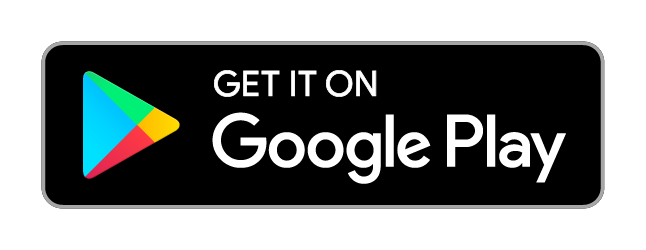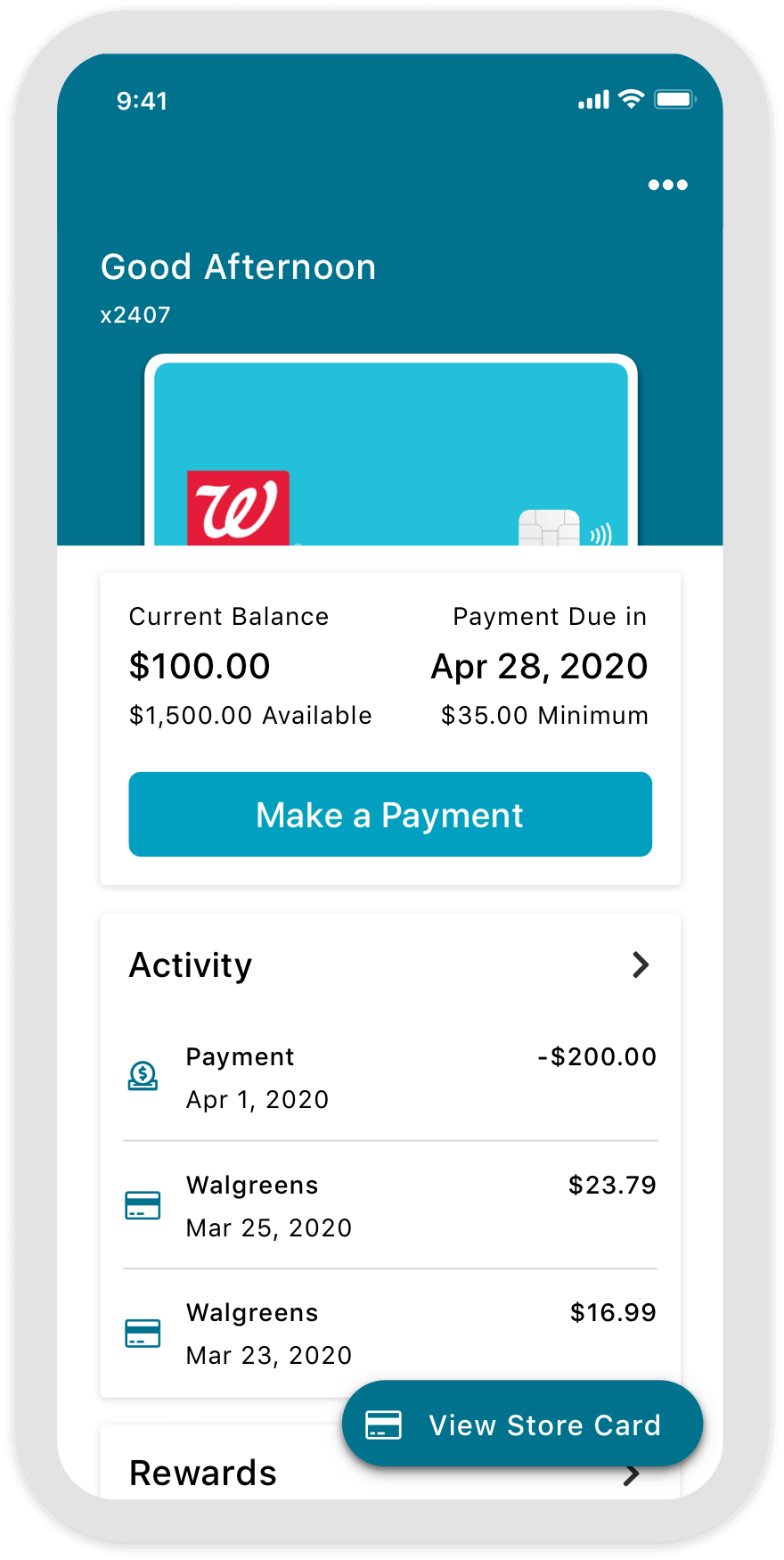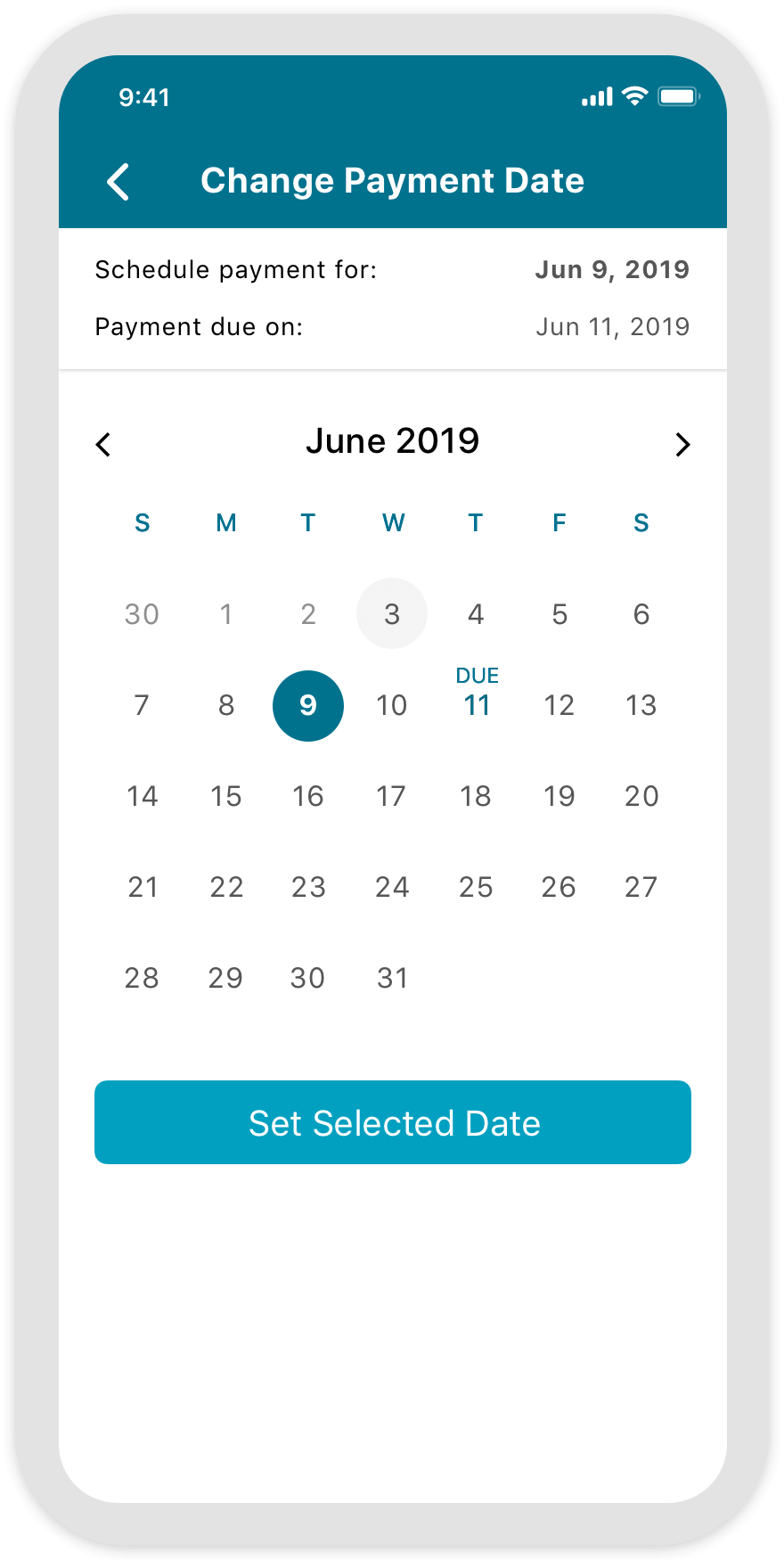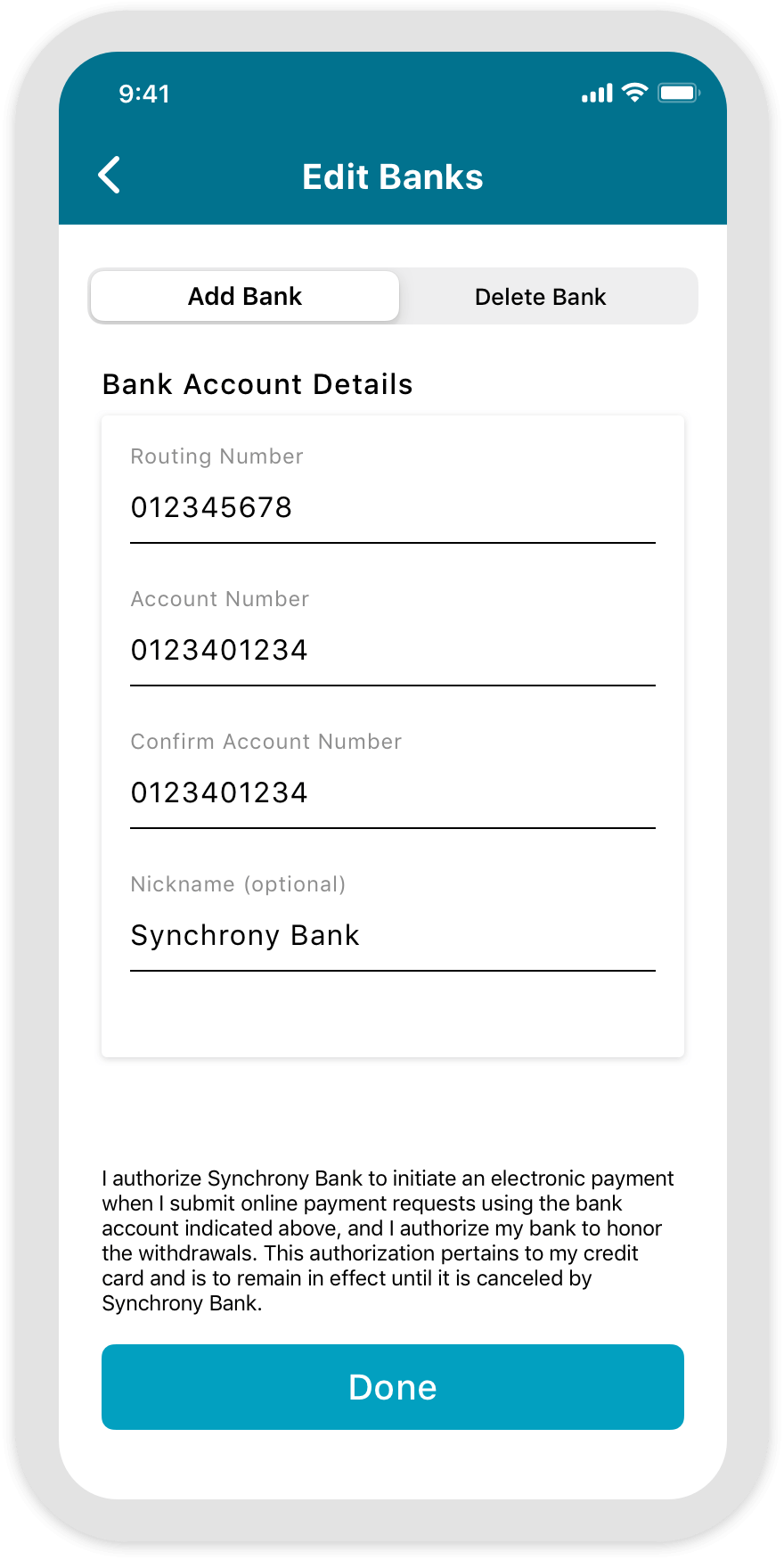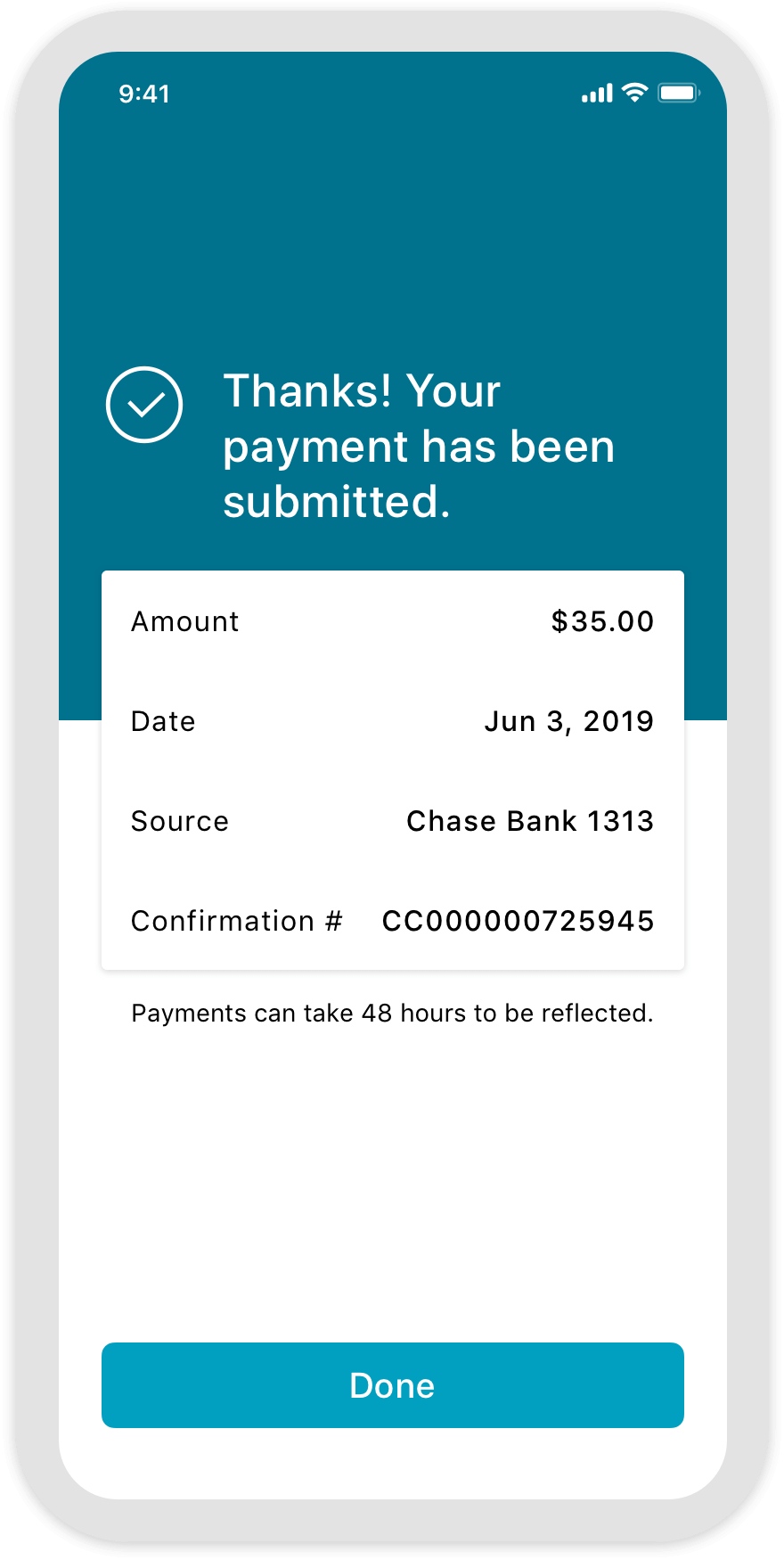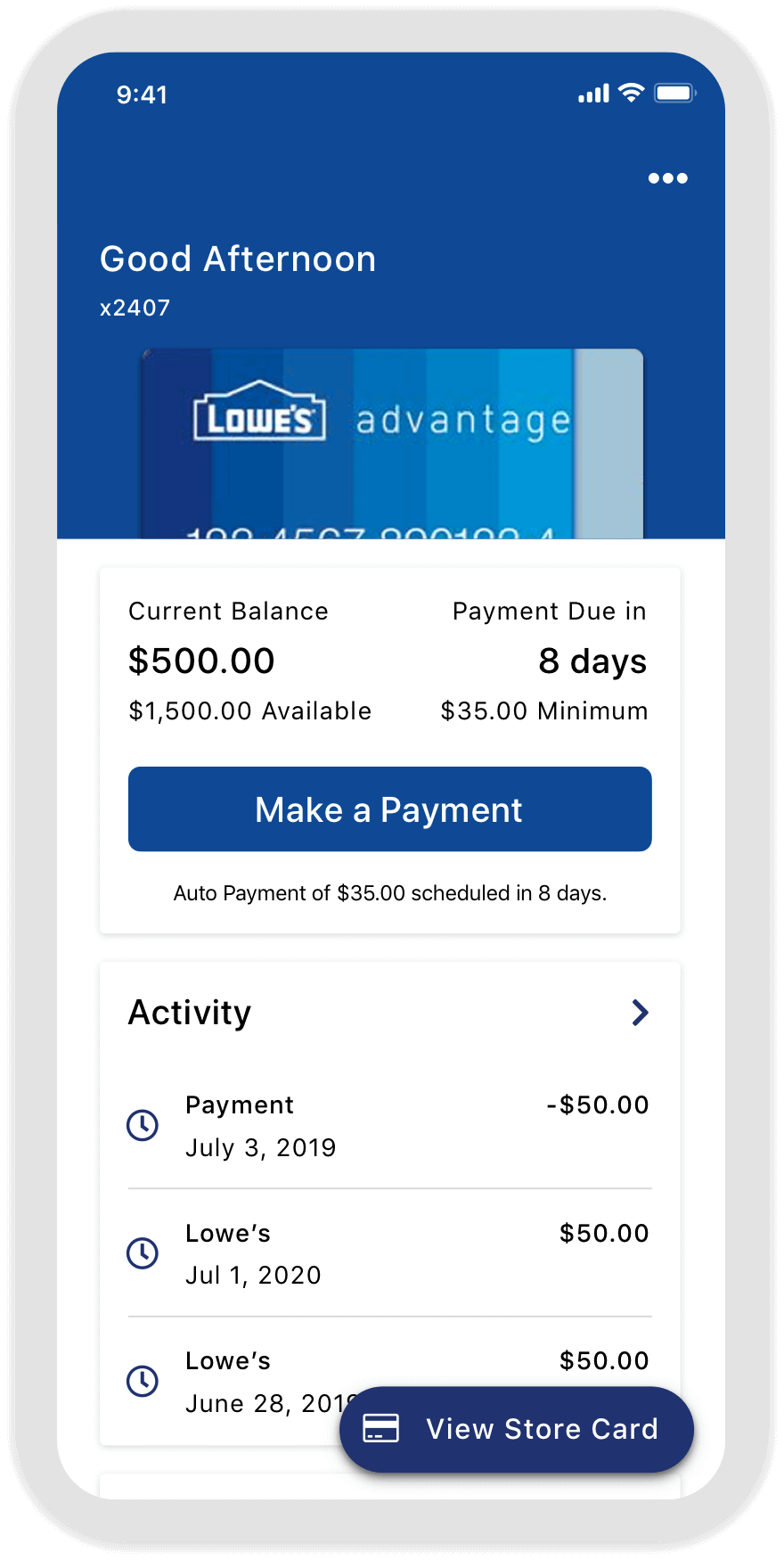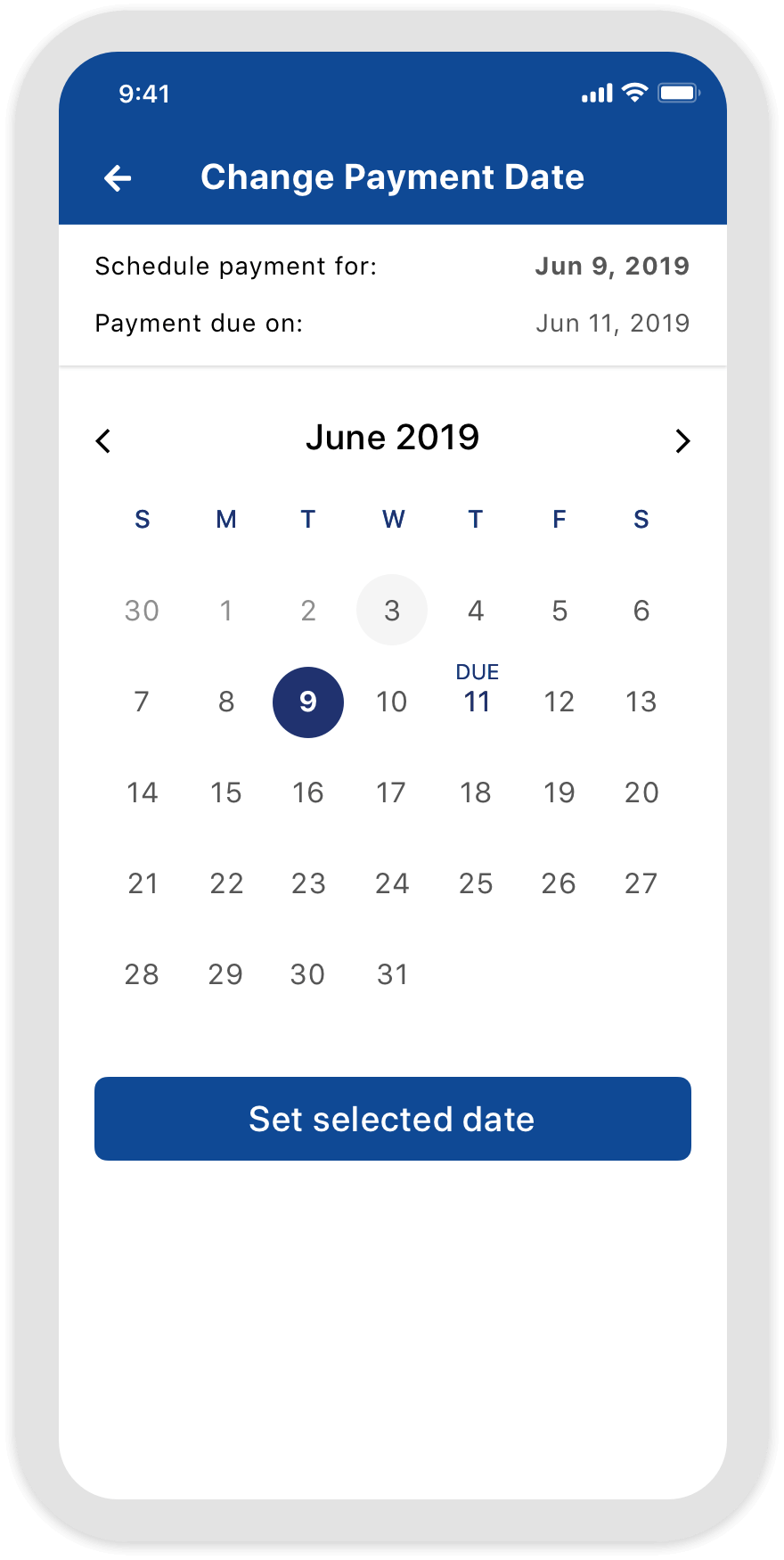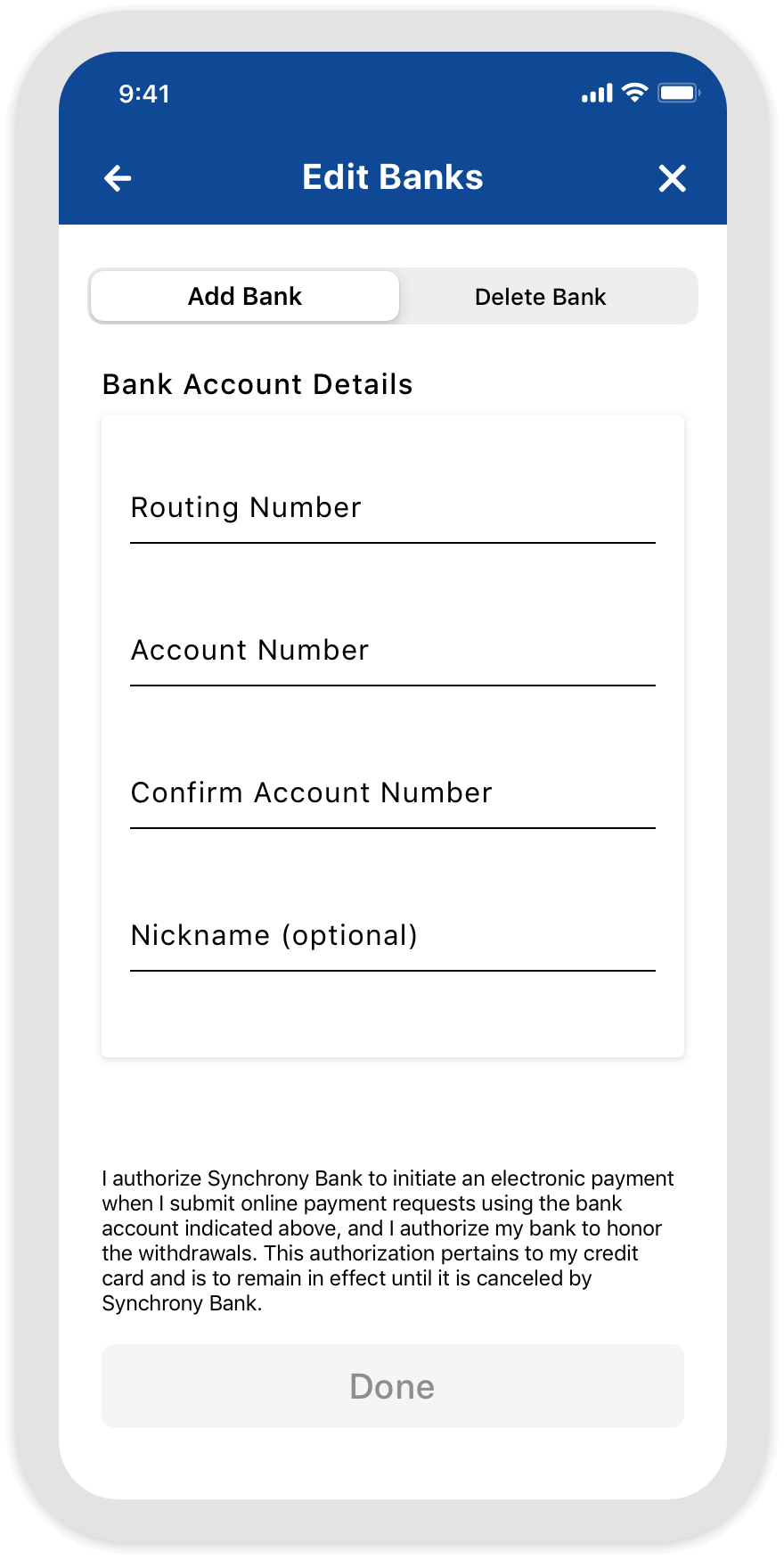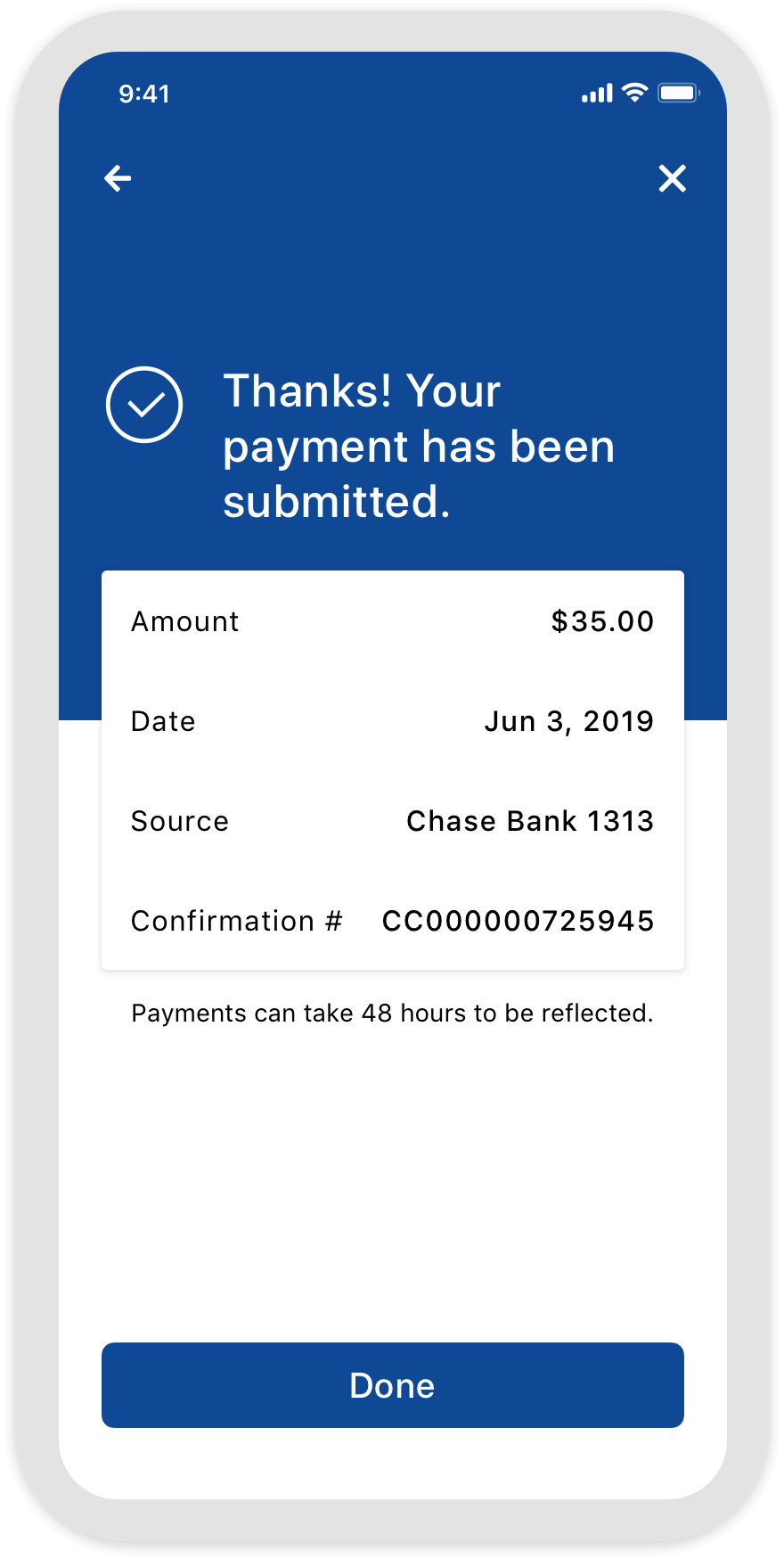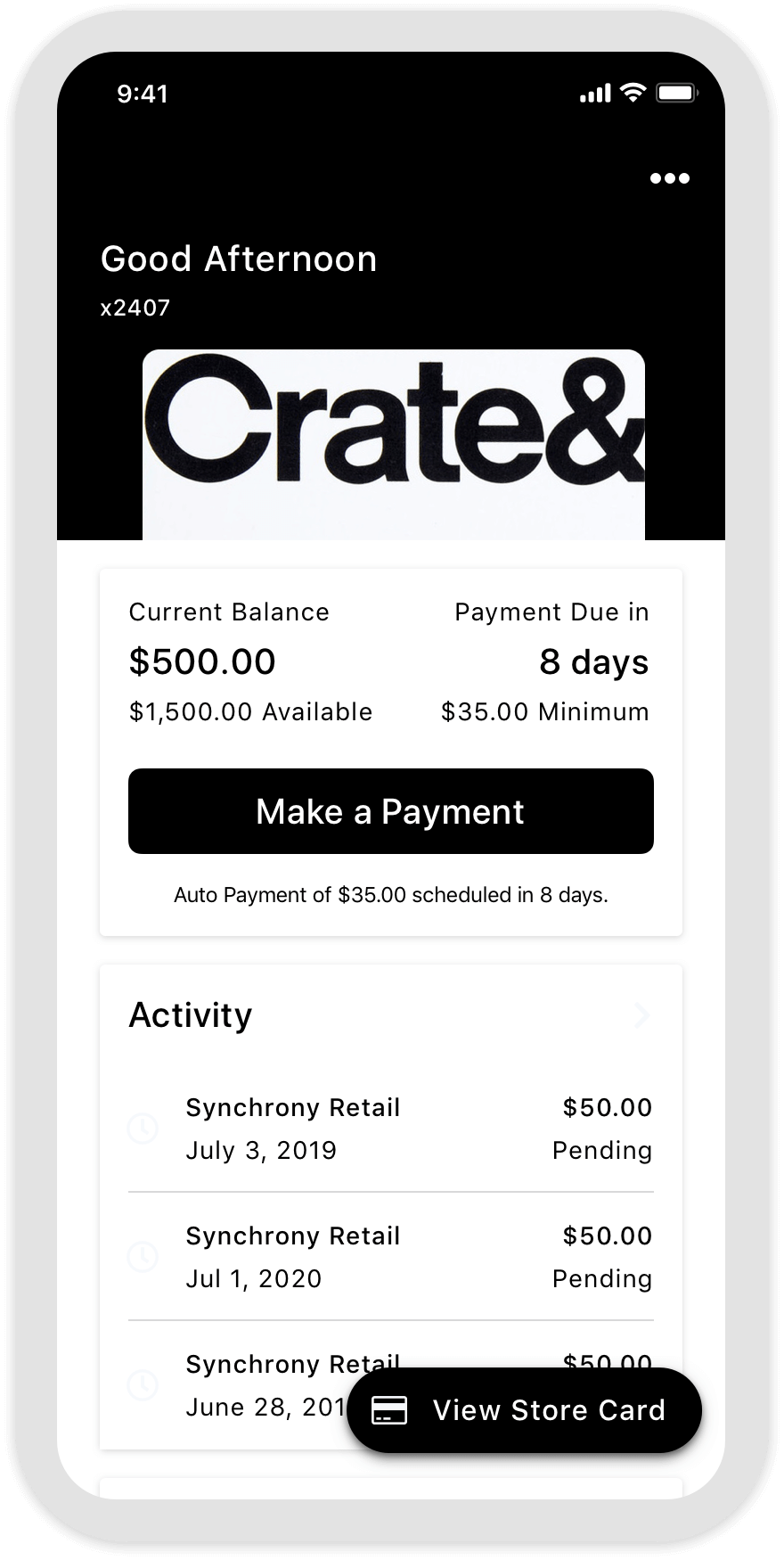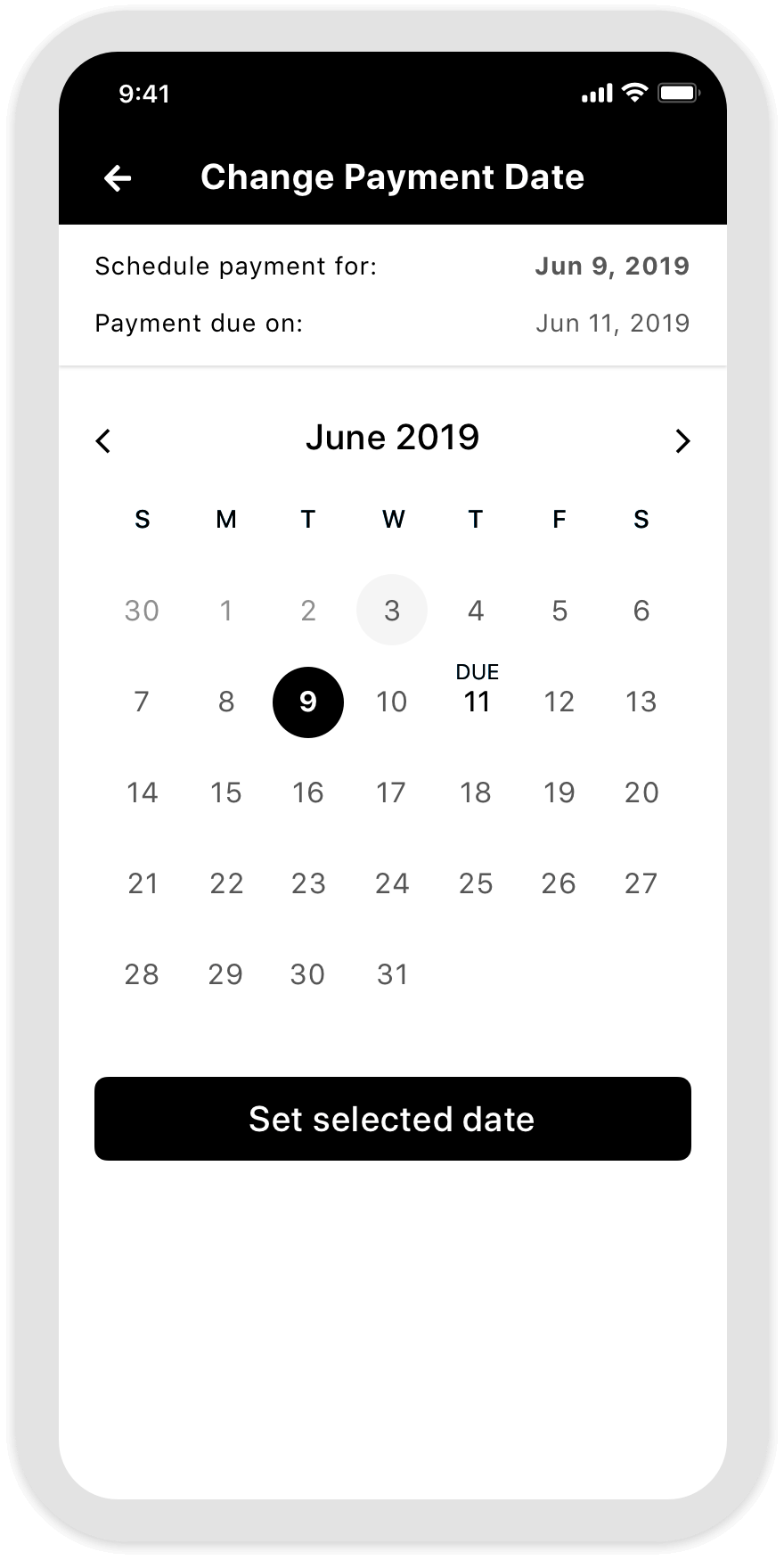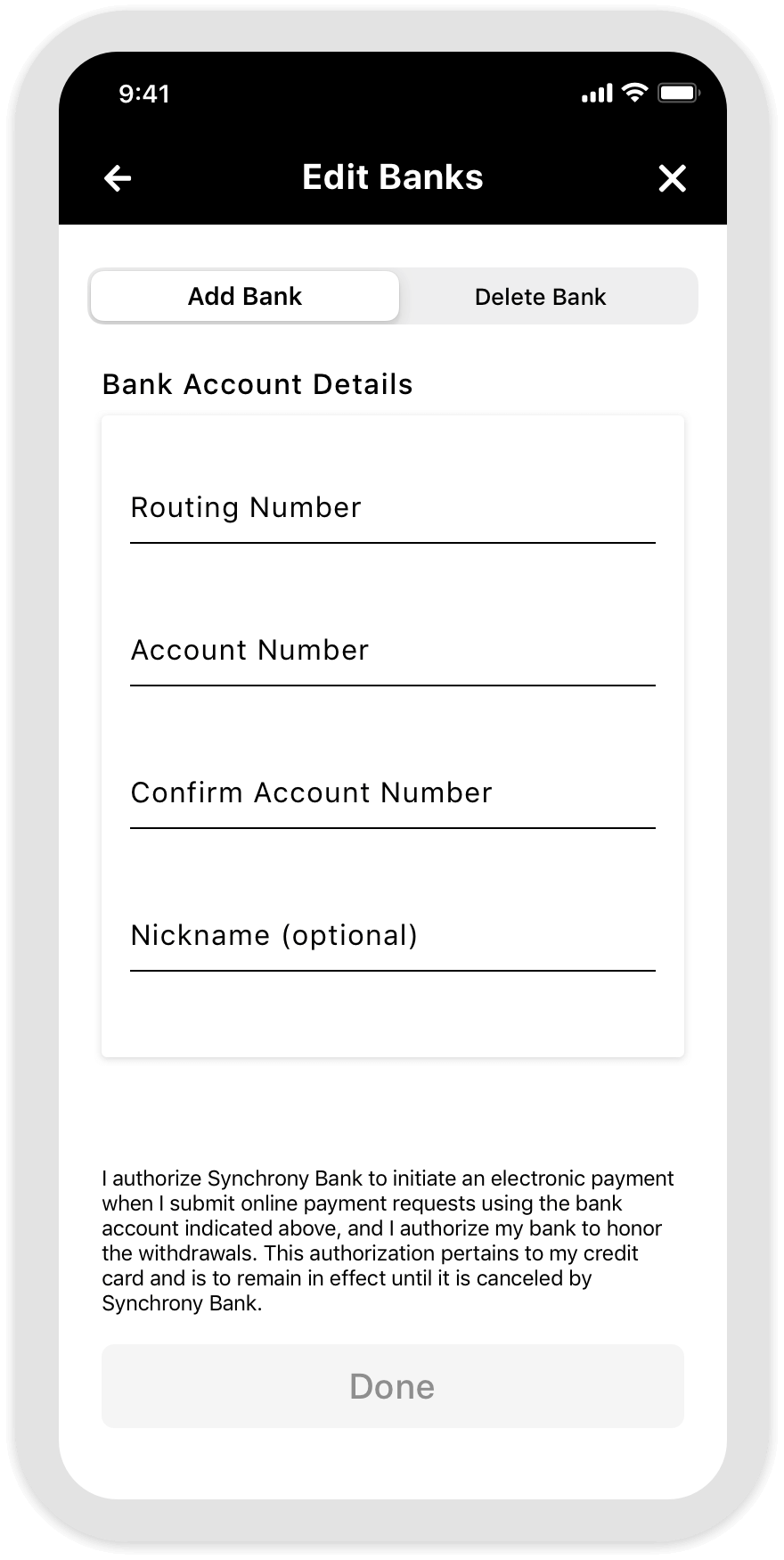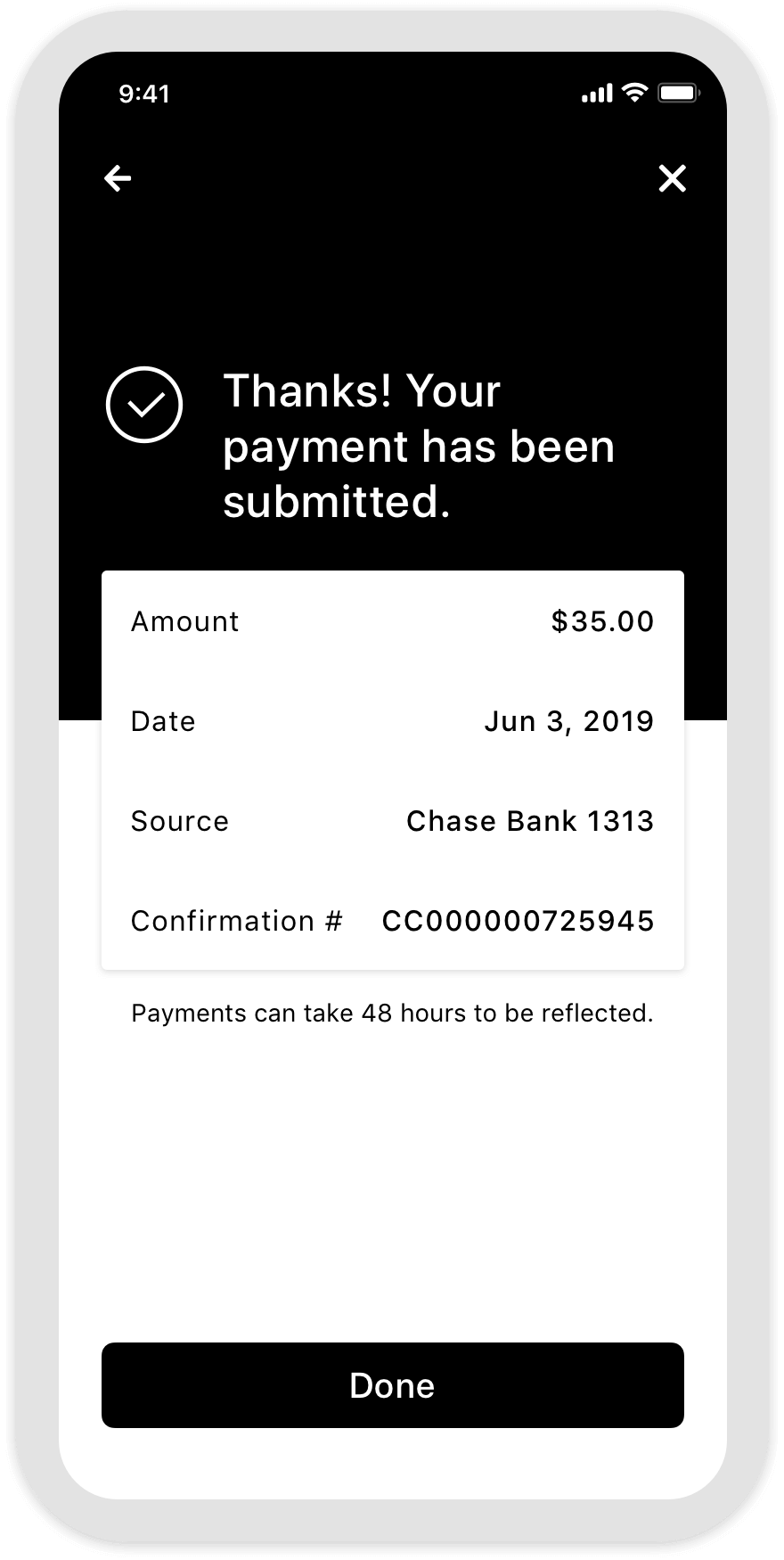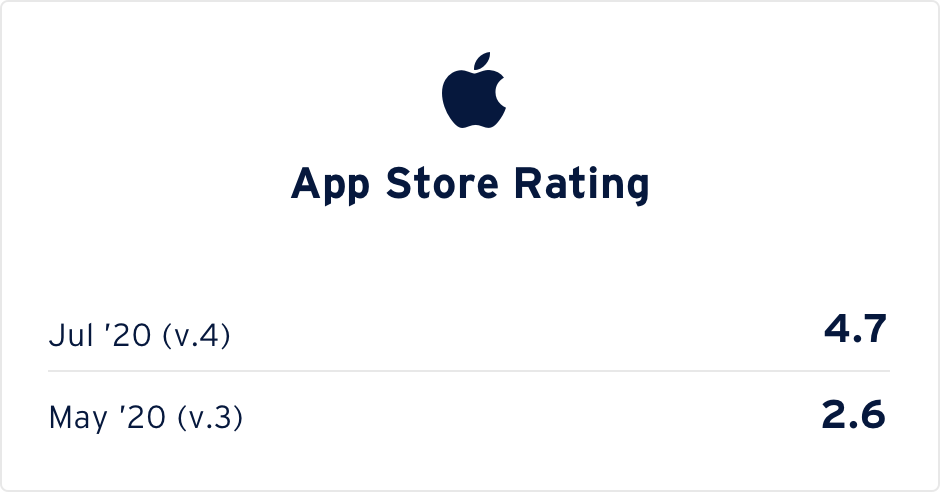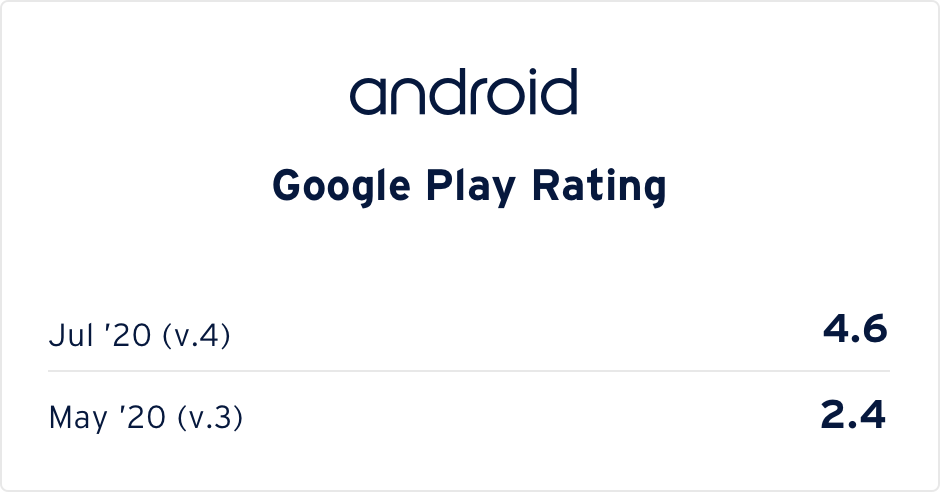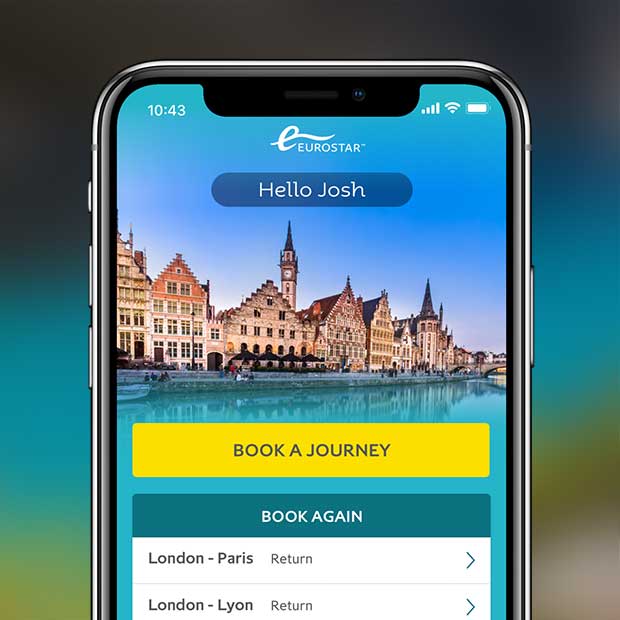Mobile Store Card App
Senior product designer
The Synchrony Store Card App is a successful mobile payment platform adopted by retail giants such as Amazon, Gap, LOWES, TJ Max, Crate & Barrel and more. I was invited to join Synchrony's mobile UX team to work on the high profile redesign project.
Key Deliverables:
E2E User Journey Map Prototype Stakeholder Interview User Testing Design System Contribution Design Handoff Documents-
The problem
The last update on the UI was done back in 2016 and it needed a fresh design overhaul. There was a confusing sub navigation below the main app bar navigation.
Too many items were placed on the account summary screen, which were overwhelming.
-
The challenge
The main challenge was coming up with a design system that worked with the white label product.
It needed to be configurable so it would align with the clients' brand guidelines and feature requirements
Digital Store Card design process
I set out to redesign the Digital Card UX that would work well with the new Account Summary Screen.
The Problem
The existing “Swipe up to show” the digital card design was looking dated and taking up a lot of the screen real estate, resulting in a confusing visual hierarchy. I set out to redesign the Digital Card UX that would work well with the new Account Summary Screen.
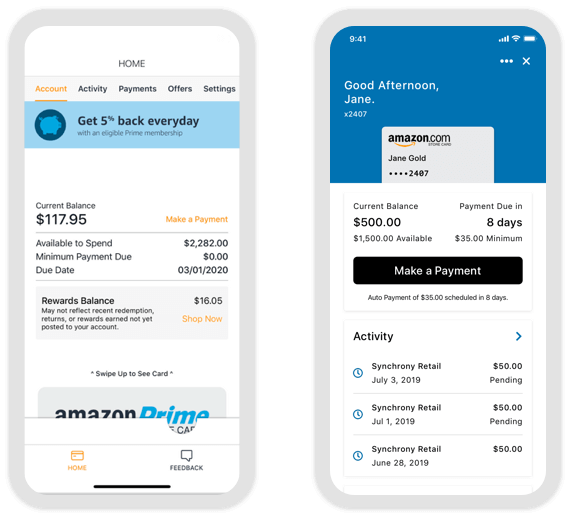
The Challenge
Although the previous “Swipe-Up” digital card design looked dated and took up about 35% of the screen real estate, the customer didn’t have much issue using it, as they learned to manage how to use it. So the main challenge was to come up with an alternative which would be easier for users to adopt, and make it look as simple as possible.
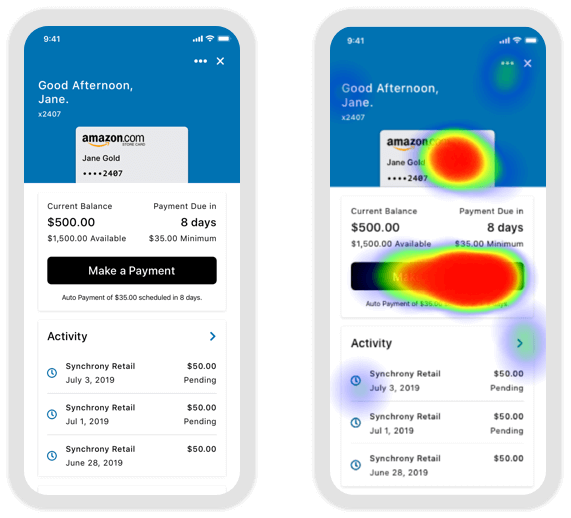
Surprisingly in testing, the users were tapping on the “Make a Payment” button more often to see the digital store card. I also changed the button text to “Pay My Bill” in the next user testing. Despite this, the result was almost the same. However, when I conducted the user testing on the discoverability of the card art as the button, it tested poorly. The success rate of the test was 20%.
The experimentation and usability tests
I tested adding a more explicit secondary button, fixed at the bottom. I also tested the account summary screen for the multiple account scenario, showing a carousel style design, so users can switch between multiple accounts. Although 30% of the users tapped on the “Make a Payment” button, this variant tested well, as it showed an improved success rate from previous 20% to 68%.
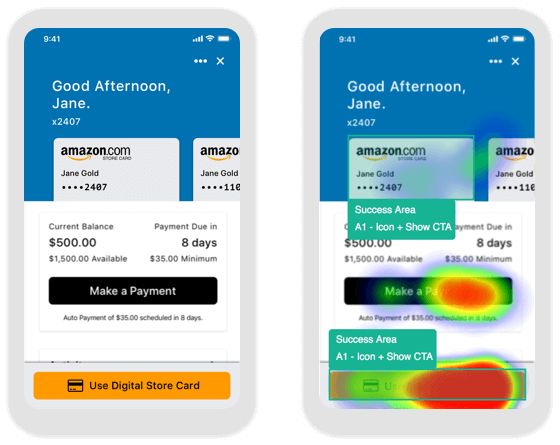

The Solution
So I made a decision to add a FAB with the dedicated functionality to “View / Use Store Card” button, and tested few bottom fixed positioned button with different visual treatments. Additionally, I added the ability to tap on the card to perform the same action for the 20% of users who discovered the button there.
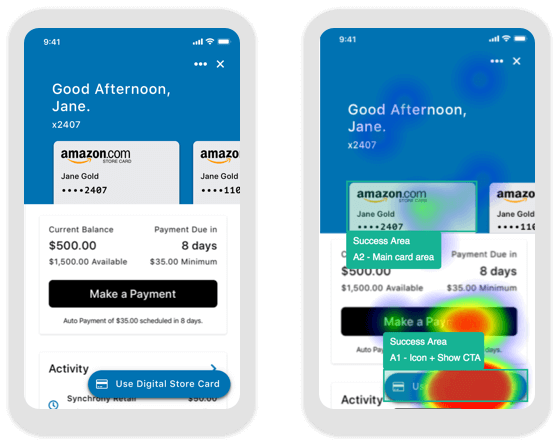

This version tested best overall. With the considerations for the 26% of users who were able to find the button to show the card, I decided to make the card art button in addition to the main “View store card” button.
The Result
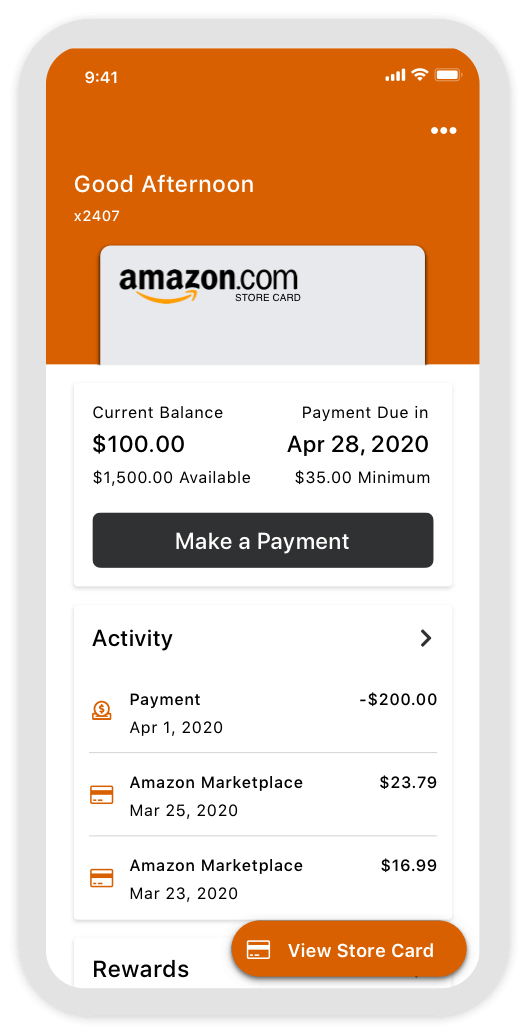
As of June 8th 2020, 3 days after the app launch, there were 141,765 total visits, 16,811 scheduled payments and 12,203 total digital card views. The App Store app rating rose from 2.6 stars to 4.6 stars, and Google Play app rating, from 3 stars to 4.6 stars.
-
Quick Payment
The app was designed for quick and easy payment. All of cardholder's relevant information is available on the account summary screen.
-
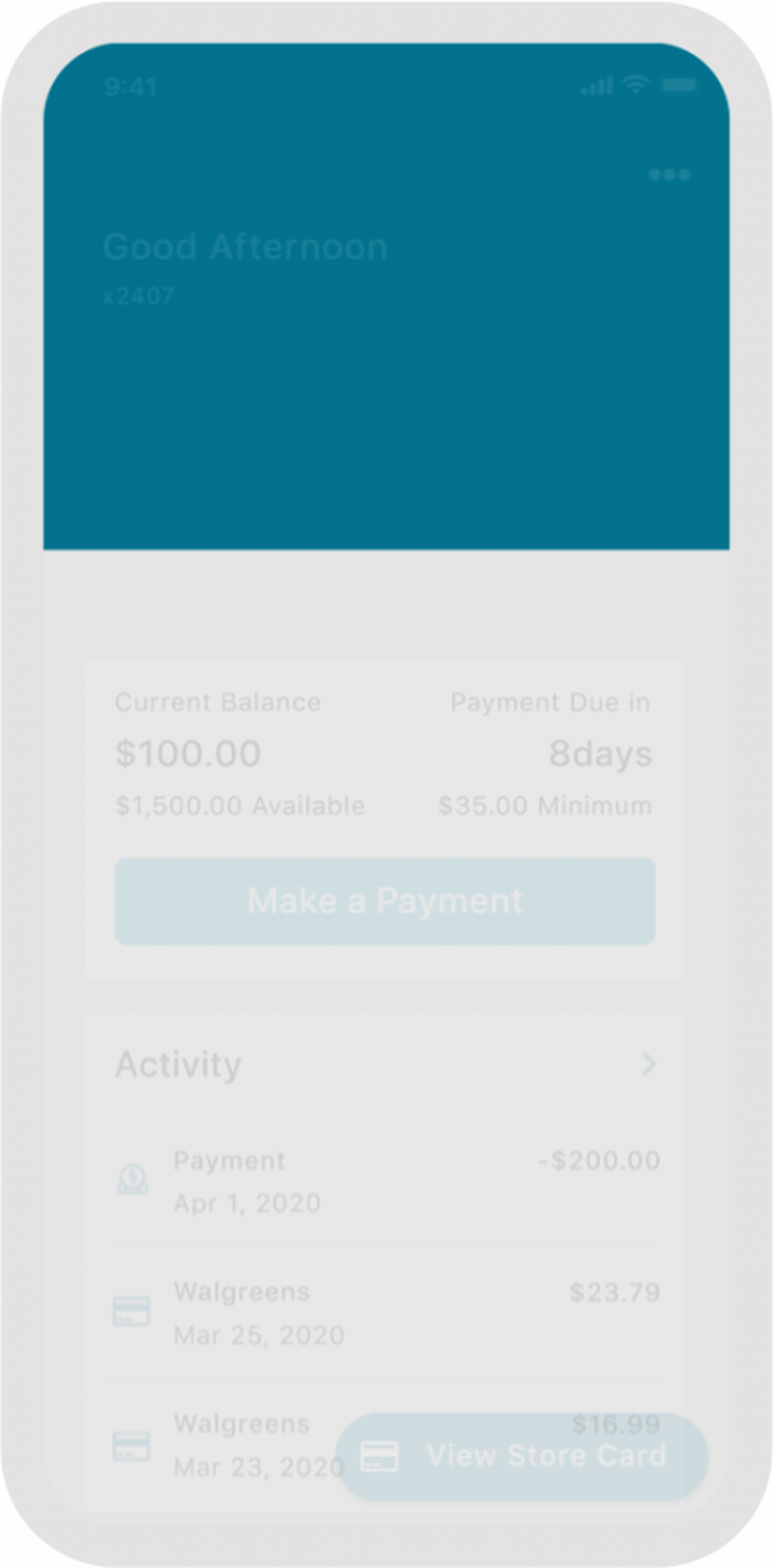
Pattern library
SYPI is a white label product. It meant that the product needed to accommodate each clients’ brand guidelines and feature requests (i.e. Colors, Logos and Rewards and Offers). As the design team grew, we were collaborating more often on the visual design. So it made sense for us to start using Figma and the pattern library I created with it.
The result
Customer feedback
-
Better interface
Much easier to use. Like that the digital card is easy to find.
-
5 Stars
They finally added a Digital Card to it so it’s perfect now!
-
Amazon Card
I never knew it existed. So easy to make payments. Or use it.
-
User friendly
Saves time paying your card on the spot, very user friendly.
